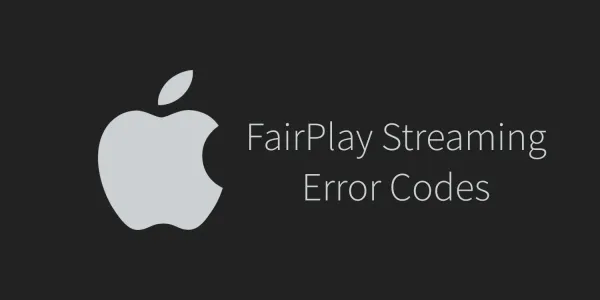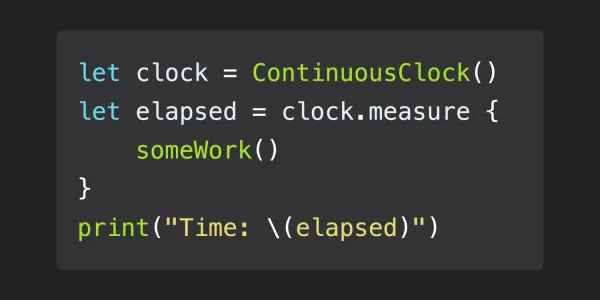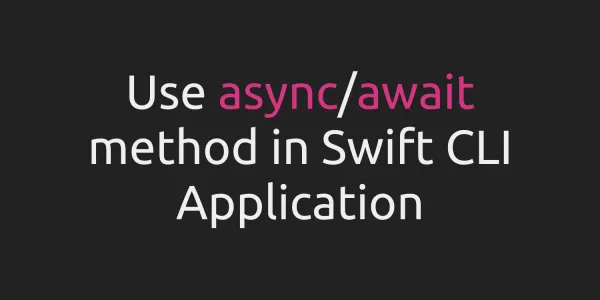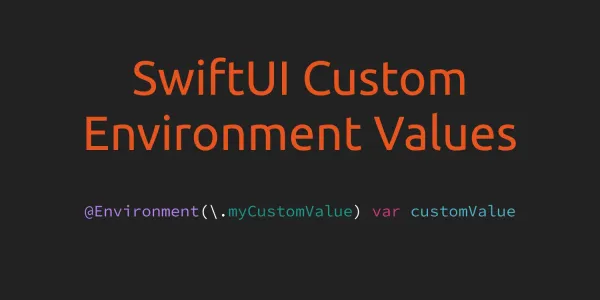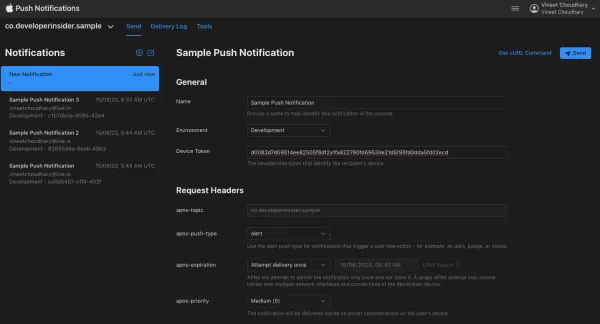An enumeration defines a common type for a group of related values and enables you to work with those values in a type-safe way within your code.
Types of Enumeration:
- Basic Enumerations
- Enumerations with Raw Values
- Enumerations with Associated Values
1. Basic Enumerations
1.1 Create an enumerations
- To create an enumerations, use
enumkeyword and place their entire definition within a pair of braces:
enum SomeEnumeration {
// enumeration definition goes here
}
- Here’s an
enumcalled Direction. It contains 4 cases. The values defined in an enumeration (such as up, down, left, and right) are its enumeration cases. You use thecasekeyword to introduce new enumeration cases.
enum Direction {
case up
case down
case left
case right
}
- Multiple cases can appear on a single line, separated by commas:
enum Direction {
case up, down, left, right
}
1.2 Initialization
- Enum values can be used by their fully-qualified name, but you can omit the type name when it can be inferred:
var direction = Direction.up
- The type of
directionis inferred when it is initialized with one of the possible values ofDirection. Now we can set it to a differentDirectionvalue using a shorter dot syntax:
direction = .down
1.3 Matching Enumeration Values with a Switch Statement
- The most fundamental way of comparing/extracting enum values is with a
switchstatement:
direction = .left
switch direction {
case .up:
print("up")
case .down:
print("down")
case .left:
print("left")
case .right:
print("right")
}
//prints "left"
2. Enumerations with Raw Values
- An enumeration may contain value. Swift supports the following types for the value of an enum:
Int,Float,StringandBool.
2.1 Implicitly Assigned Raw Values
-
When you’re working with enumerations that store integer or string raw values, you don’t have to explicitly assign a raw value for each case. When you don’t, Swift will automatically assign the values for you.
-
The enumeration below is a refinement of the earlier Direction enumeration, with string raw values to represent each direction’s name:
enum Direction: String {
case up
case down
case left
case right
}
- In the example above, Direction.up has an implicit raw value of "up", and so on. You access the raw value of an enumeration case with its rawValue property:
let direction = Direction.right.rawValue
// direction is "right"
- The enumeration below is a Planet enumeration, with integer raw values to represent each planet’s order from the sun:
enum Planet: Int {
case mercury = 1, venus, earth, mars, jupiter, saturn, uranus, neptune
}
- In the example above,
Planet.mercuryhas an explicit raw value of 1,Planet.venushas an implicit raw value of 2, and so on. You access the raw value of an enumeration case with its rawValue property:
let earthsOrder = Planet.earth.rawValue
// earthsOrder is 3
2.2 Initializing from a Raw Value
- You may create an enum object using a raw value. it may fail. Therefore, the returned object may be nil. This example identifies earth from its raw value of 3:
let possiblePlanet = Planet(rawValue: 3)
// possiblePlanet is of type Planet? and equals Planet.earth
- If you try to find a planet with a position of 11, the optional
Planetvalue returned by the raw value initializer will benil:
let positionToFind = 11
if let somePlanet = Planet(rawValue: positionToFind) {
switch somePlanet {
case .earth:
print("Mostly harmless")
default:
print("Not a safe place for humans")
}
} else {
print("There isn't a planet at position \(positionToFind)")
}
// Prints "There isn't a planet at position 11"
3. Enumerations with Associated Values
- With associated values, each case may contain value along with it. Enum cases can contain one or more associated values.
3.1 Create an Enumerations with Associated Values
- The enumeration below contains the
movecase with an associated distance
enum Action {
case jump
case kick
case move(distance: Float)
}
3.2 Matching Enumeration Values with a Switch Statement
- The switch statement can extract the associated value:
switch action {
case .jump:
print("Jump")
case .kick:
print("Kick")
case .move(let distance): // or case let .move(distance):
print("Moving: \(distance)")
}
3.3 Matching Enumeration Values with a if Statement
- A single case extraction can be done using if case:
if case .move(let distance) = action {
print("Moving: \(distance)")
}
3.4 Make Equatable Enums with Associated Values
- Enums with associated values are not Equatable by default. Implementation of the
==operator must be done manually:
extension Action: Equatable { }
func ==(lhs: Action, rhs: Action) -> Bool {
switch lhs {
case .jump: if case .jump = rhs { return true }
case .kick: if case .kick = rhs { return true }
case .move(let lhsDistance): if case .move (let rhsDistance) = rhs { return lhsDistance == rhsDistance }
}
return false
}
- Use of
==operator
if Action.move(distance: 10.2) == action {
print("Moving Same Distance")
} else {
print("Moving Different Distance")
}
Next - Advanced Enum (Enumerations) by Example

